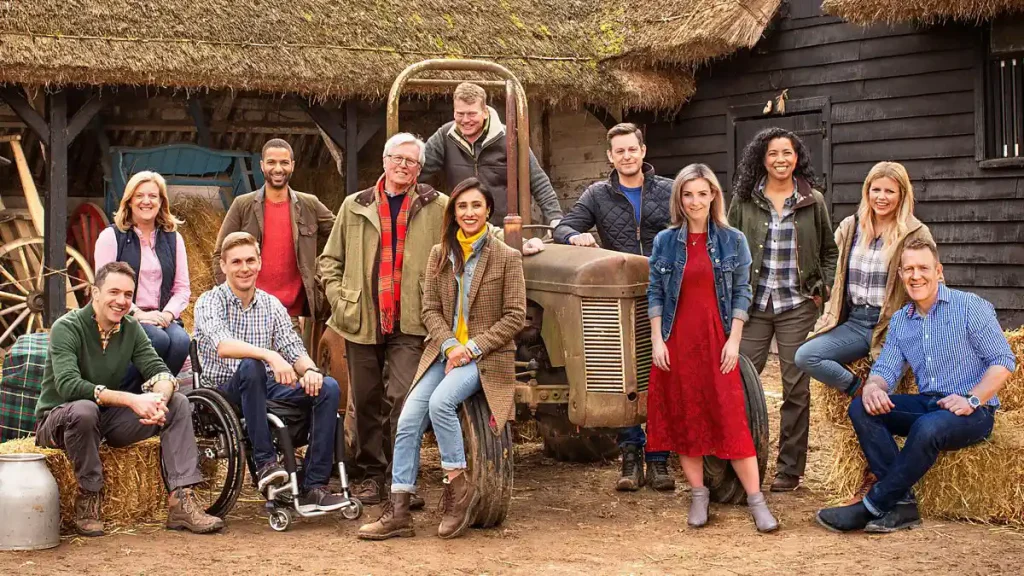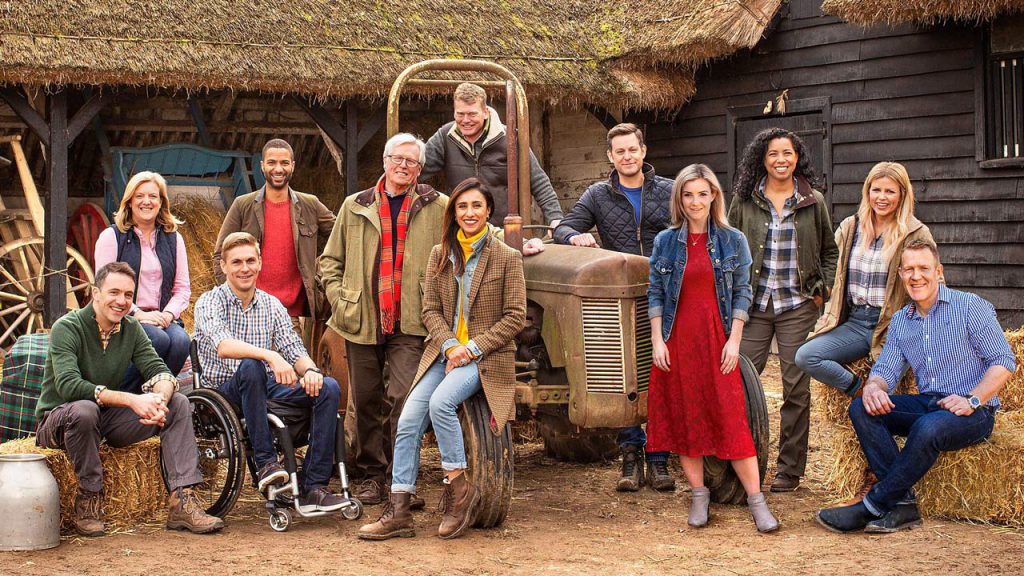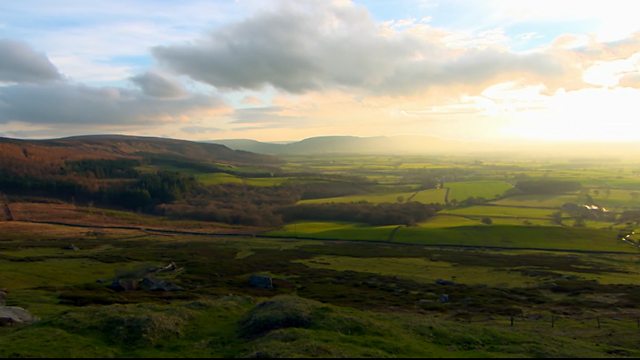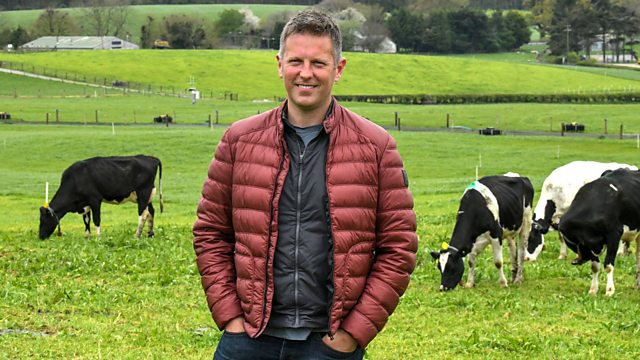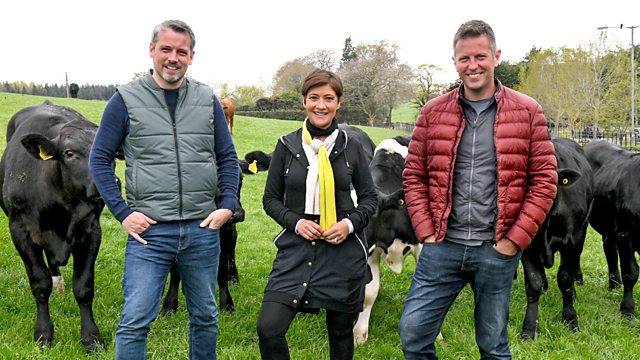Countryfile – Farmers and Festivals – Each year, across the vast landscapes of the UK, numerous farms find innovative ways to supplement their incomes. One increasingly popular approach is by welcoming the public onto their lands to immerse themselves in the joyous melodies and rhythms of music festivals. Anita Rani takes us on a delightful journey to the picturesque region of Somerset, where she meets the dedicated sheep farming family, Andy, Jen, and their lively sons.
For nearly two decades, Fernhill Farm, the family’s cherished piece of land, undergoes a magical transformation as it becomes the backdrop for a spectacular annual music festival. This isn’t a new venture for them; in fact, the family has seamlessly blended their farming traditions with modern festival culture for 18 memorable years.
During her visit, Anita collaborates with the ever-energetic festival organiser, Kev. Together, they channel their creative energies into crafting oversized, comfortable sofas, making innovative use of the wool sheared from the farm’s very own sheep. These unique creations promise to offer festival-goers a cozy nook to relax and enjoy the festivities.
The warmth of the farm isn’t only limited to its fields. Inside the bustling farm café kitchen, Anita teams up with Kyle, Andy and Jen’s eldest son who has recently celebrated his 18th birthday. With shared enthusiasm, they prepare a delectable mutton curry, destined to tantalize the taste buds of hundreds of eager campers.
However, Fernhill Farm is not just a testament to agricultural productivity and festival vibes. As Anita ventures further out into the fields, she discovers an environmental gem: an innovative waste water purification system. This isn’t your regular system; it comprises multiple interconnected lakes that yield water of such pristine quality that it has earned the title of an official Ark habitat. This conservation effort is crucial as it provides a safe haven for the endangered white claw crayfish.
Finally, adding a touch of nostalgia to her journey, Anita delves into the rich archives of Countryfile. She takes us on a nostalgic trip, revisiting a soul-stirring outdoor violin rendition of Ralph Vaughan Williams’ renowned piece, Lark Ascending.
Countryfile – Farmers and Festivals – How Agriculture Meets Music in the Fields of England
Every summer, hundreds of farms across the English countryside open their gates to hordes of music fans, transforming pastoral fields into makeshift festival grounds. For many farming families, hosting these musical extravaganzas has become a time-honored tradition spanning generations. This diversification provides a much-needed source of income to support Britain’s small farms.
A Family Affair at Fernhill Farm
Nestled in the picturesque county of Somerset, Fernhill Farm has hosted festivals for 18 consecutive years. Television presenter Anita Rani recently visited owners Andy and Jen to observe preparations for their annual event. Like a well-oiled machine, the entire family works together to convert their land into a festival venue.
Andy and Jen’s two teenage sons lend helping hands, toiling away on tasks both mundane and exciting. Under a sprawling tent, young Kyle helps the farm chef whip up vats of aromatic mutton curry to feed hungry concertgoers. Outside, his older brother assists groundskeeper Kev in constructing oversized sofas from wool shorn from the farm’s own flock of sheep.
For the brothers, the pre-festival rush brings a thrilling change of pace from everyday life on the farm. They relish having thousands of lively guests who appreciate the fruits of the family’s agricultural labors.
From Pasture to Performance Space
Transforming fields into an impromptu festival ground is no small feat. It requires extensive planning and infrastructure upgrades to support the influx of people.
A suitable outdoor stage must be constructed, temporary toilet facilities installed, and access roads created for loading equipment and transporting guests. Power and lighting need to be routed across the property to supply electricity. Vendors must be recruited to provide concessions, and security coordinated.
Most vital of all is ensuring the safety of the farm’s livestock and fields. Protective fencing prevents wandering guests from trampling pastures and crops. Schedule adjustments are made to accommodate lost grazing time.
When executed properly, these preparations allow farms to successfully host major events without disturbing essential agricultural operations. The fields revert back to tranquility once the last guitar chord fades.
From Lowing Herds to Cheering Crowds
For Andy and Jen at Fernhill Farm, the connection between agriculture and music festivals runs much deeper than logistics. They view opening their farm as a meaningful way to educate urban visitors about rural life.
City dwellers get to interact firsthand with the source of their food, enjoying farm-fresh cuisine and glimpsing the inner workings of food production. Between sets, families can visit the goat paddock, witness sheep shearing, or sample cheese from the dairy.
The presence of animals and crops provides a constant reminder that the festival occupies real working farmland. It’s a refreshing change of scenery from the usual concrete venues.
In return, the infusion of festival energy breathes new life into the landscape. As Anita Rani lovingly described, the sounds of rhythmic clapping and joyful crowds mingling with the bleating of sheep are “simply magical.”
A Lifeline for Local Music & Farmers
Hosting festivals provides a vital source of income for farms struggling to stay financially viable. The UK has lost over half its farmers since World War 2, with small family operations especially vulnerable.
Rather than selling their land, many farmers choose to diversify their revenue streams while continuing food production. Opening the gates to music fans represents a creative way to generate funds and promote their brand. Event tickets and concession sales provide hefty profits compared to fickle crop yields and milk prices.
Festivals also deliver significant economic benefits to the host communities. Local construction crews, electricians, plumbers, concessionaires, and other vendors earn paychecks staffing the events. Neighboring inns and campgrounds overflow with lodgers.
Beyond the fiscal gains, farms supply an invaluable platform for up-and-coming regional artists to share their music. Local performers often start their careers playing small farm festivals before hitting the big time. For rural communities, these events nourish artistic expression and cultural connection.
Natural Wonders Below the Surface
In addition to their above-ground attractions, certain farms offer ecologically important landscapes invisible to festivalgoers. Lurking beneath Fernhill Farm is one such secret treasure – a network of freshwater streams and ponds teeming with rare wildlife.
This aquatic system supports an officially designated Ark site for the endangered white-clawed crayfish. The designation provides a protected habitat where these vanishing creatures can thrive. Without proactive conservation by farms like Fernhill, this fragile species could blink out of existence entirely.
Festival organizers take meticulous precautions to prevent contaminants or foot traffic from disturbing the vulnerable crayfish population. Maintaining the ecological health of their land remains a priority, even when thousands of guests are living on site.
A Musical Tradition Rooted in the Countryside
Rural music festivals seem ubiquitous today, but their origins trace back to small countryside concerts conceived decades ago. In the 1970s, British composer Ralph Vaughan Williams showcased one of his most acclaimed works, The Lark Ascending, at an outdoor country festival.
This violin-based piece attempted to capture the beauty of the English landscape through melody. Its selection reflects a long history of classical and folk composers finding inspiration in rural scenes and sounds, from bleating lambs to chirping songbirds.
Vaughan Williams and his successors composed stirring country-themed music to be enjoyed outdoors, rooted in the villages and farms where such songs first took flight. The connection between the land and music remains integral, as farm festivals continue this legacy of al fresco country performance.
Conclusion: A Harmonious Relationship
The synergistic relationship between agriculture and music enriches English culture while securing the future of its farms. With a bit of ingenuity, even the humblest pasture can be temporarily converted into a vibrant concert ground. Farming families graciously open their gates to the public, allowing people from all walks of life to enjoy the pastoral landscapes that cradle the nation’s food supply. Musicians bask in the natural acoustics of open fields, serenaded by lowing cattle.
From sustenance to song, farms form the foundation of thriving rural communities. Hosting music festivals represents one creative way to sustain this heritage in the 21st century. The crowds eventually depart, wagons loaded with fond memories, and the fields return to peace. But the spirit of community endures until the music plays again next year.
Frequently Asked Questions
What benefits do farmers receive from hosting music festivals?
Farmers generate significant revenue from ticket sales, vendor fees, sponsorships, and concession sales at festivals. This supplemental income helps small family farms remain financially viable, providing a creative alternative to selling off land. Festivals also promote the farm’s brand to new audiences.
How do farmers transform their land into a festival ground?
It requires months of preparation and infrastructure upgrades. Stages, fencing, toilets, roads, power, lighting, security, and vending facilities must be installed to support crowds. Careful scheduling prevents disturbing normal farm operations. Once over, the farm quickly reverts to its everyday agricultural use.
Why do festivals benefit local communities?
In addition to the economic perks of increased tourism and spending, festivals provide jobs for local contractors, vendors, and performers. Neighboring lodging businesses overflow with visitors. For rural villages, festivals deliver entertainment and civic pride.
What unique environmental features are found on some farms?
Some farms contain rare ecosystems worthy of conservation, like Fernhill’s freshwater crayfish habitat. Festival organizers take special precautions to avoid disturbing vulnerable flora and fauna. Sustainable practices reduce environmental impact.
How are agriculture and music historically connected?
Classical composers like Ralph Vaughan Williams created iconic rural-themed works designed specifically for outdoor country performance. Folk music also emerged directly from rural communities. Farm festivals continue this legacy.
